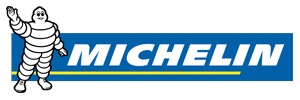Diesel Engine Repair
Diesel engine systems are designed to use their own compression to ignite fuel, with durability, reliability, and optimization in mind. Gasoline engines work by mixing the fuel with air, compressing it with pistons, and igniting it with a spark plug. In a diesel engine, the rate of compression is more than three times that of a regular gasoline engine system. A diesel engine system works by compressing air at a high ratio, which creates a lot of heat. This compression causes fuel to be directly injected into the cylinder, where the fuel vapor is ignited. Spark plugs are not used in the construction of diesel engines. Diesel systems use glow plugs to start and run more efficiently in colder temperatures instead. For fast starts, glow plugs have two heating elements that allow them to get very hot very quickly. Turbochargers quickly compress the air flowing into the engine, increasing the compression ignition and allowing for more air to flow into the chamber. If there is more air in the combustion chamber, then more fuel can be added to the combustion process. Turbochargers improve the efficiency of diesel engine systems, which leads to more miles per gallon of diesel fuel.
BenefitsYou should be aware of problems with your diesel engine and seek repairs immediately, as it plays a major role in your vehicle. If you are listening in on the engine, it can be hard to diagnose diesel engine problems because diesel engines make a considerable amount of noise during normal, everyday operation. However, there are a number of symptoms indicating your diesel engine needs maintenance. Signs of low fuel pressure, such as a diesel engine running at lower RPMs or a hard-to-start engine, may also be symptoms of an insufficient fuel supply or poor fuel quality. Can allowing our staff to troubleshoot your diesel engine help ensure that the proper repair procedures are followed to repair the engine? Different diesel engine manufacturers require different preventive maintenance procedures, so referring to your owner’s manual will help you plan and schedule routine maintenance services. To increase the life of your diesel engine system and promote overall vehicle maintenance, keep all diesel engine components—glow plugs, fuel injectors, and turbochargers—in proper working order.
|






